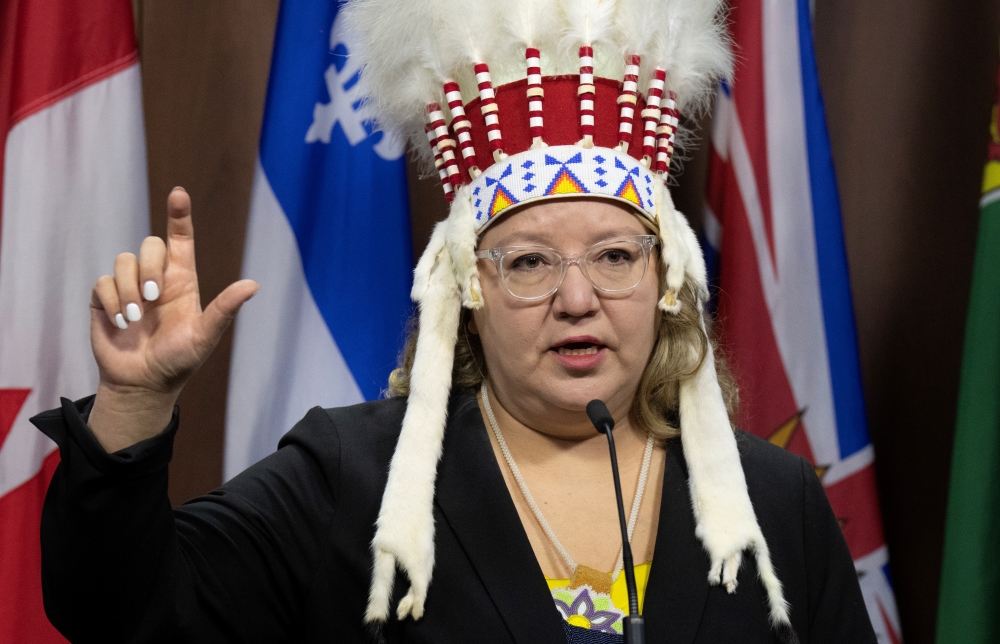The national chief of the Assembly of First Nations says the organization is about to finalize a deal with Ottawa on child welfare reforms that will top the $20 billion promised as part of a landmark settlement.
But it likely won’t include reforms to a legal rule intended to ensure First Nations kids get the care they need when they need it with payments to be worked out afterward.

Cindy Woodhouse Nepinak is calling it a “monumental agreement” and said she will continue to work with chiefs before they ratify it later this year.
“Time is not our friend — there’s a (federal) election in a year or less,” Woodhouse Nepinak said in an interview Tuesday.
“I think the chiefs will be very happy with what I’ve been negotiating alongside the Assembly of First Nations.”
The assembly did not immediately respond to a request about whether or not chiefs will be able to see the full draft agreement, and whether or not they will need to promise confidentiality to do so.
Woodhouse Nepinak’s comments come after three regional chiefs representing more than half of First Nations recently penned a letter to her saying the assembly is overstepping by making decisions about reforms without consulting children and families.
The chiefs, representing First Nations in Saskatchewan, British Columbia and Quebec-Labrador, said the organization is not being transparent in its negotiations for a final settlement agreement.
Chiefs Bobby Cameron, Terry Teegee and Ghislain Picard said the assembly has refused to call meetings on the negotiations since February, and it has imposed terms of reference that interfere with an independent expert advisory committee responsible for developing and implementing a work plan to reform Indigenous Services Canada.
As a result, they said, Canada is now only prepared to fund the advisory committee for activities the assembly authorizes.
They also raised concerns that the First Nations Child and Family Caring Society, which jointly launched the human-rights complaint that led to the settlement agreement, is being frozen out.
Woodhouse Nepinak said Tuesday the agreement is unlikely to include funding to ensure Jordan’s Principle is followed.
That’s a legal rule that says First Nations children must receive the health care and social services they need even if there is a jurisdictional dispute over which government should pay for it, which was brought about by the Caring Society alongside the family of Jordan Rivers Anderson.
“That’s a separate issue,” Woodhouse Nepinak said. “So we can start talking about that in the fall.”
The complaint that led to the settlement revolved around allegations that Ottawa’s underfunding of on-reserve child welfare services amounted to discrimination, and that First Nations children were denied equal access to support including school supplies and medical equipment.
The Canadian Human Rights Tribunal found in 2016 that First Nations are adversely affected by the services provided by the government and, in some cases, denied services as a result of the government’s involvement.
One representative plaintiff in the class-action for Jordan’s Principle families, Carolyn Buffalo, is a mother from Montana First Nation in Maskwacis, Alta.
Shortly after the Federal Court approved the settlement last year, she spoke about frustrations in trying to get her son care for his cerebral palsy on-reserve, despite Jordan’s Principle being adopted by the federal government in 2007.
“Reforming the system of child and family services and putting it back into the hands of First Nations, that’s what we’re talking about right now,” said Woodhouse Nepinak.

